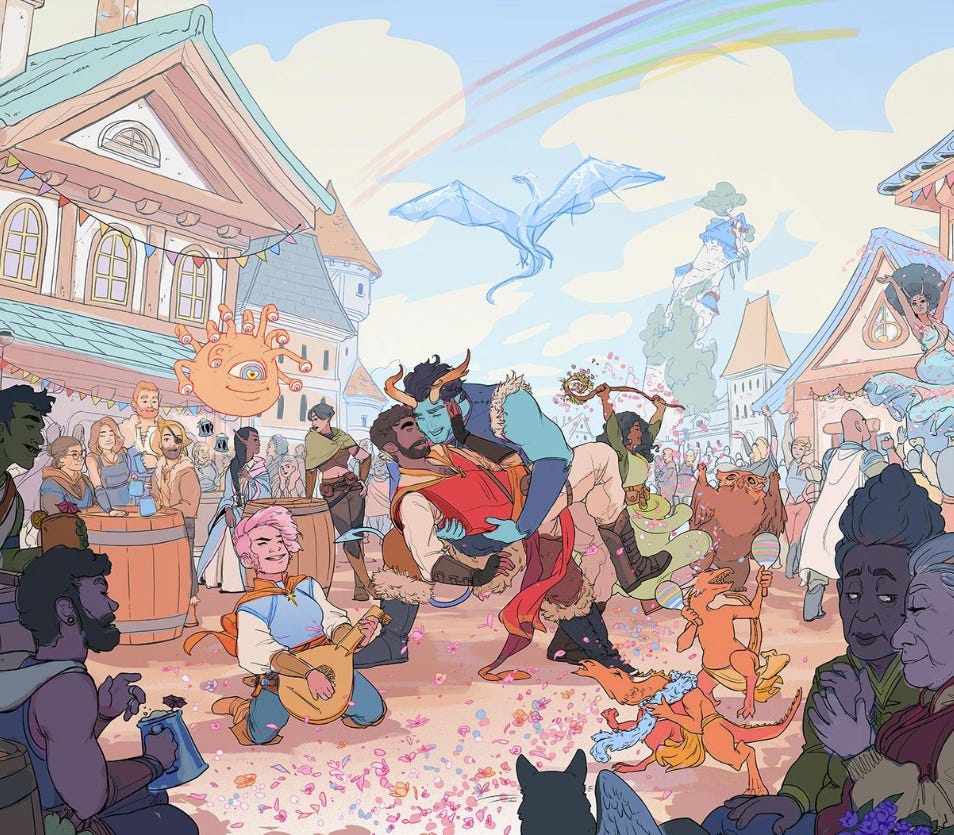Why Is Nick Fuentes Popular With Young Men?
Notes from the post-gatekeeping era
In the past few months Nick Fuentes has appeared on a number of the largest right-leaning podcasts and online shows in America; since August alone he’s been interviewed by Patrick Bet David, Dave Smith and Sam Hyde, each of which garnered multiple million views/ listens. What Fuentes calls his generational run culminated this month in an interview with Tucker Carlson, the biggest political podcast in America. The Carlson interview triggered a rhetorical war within the American right that is threatening the existence of one of its most important institutions.
Fuentes has said things - on any cultural subject you can name, but especially jewish people and the holocaust- that are miles outside the normal range of respectable political discourse, but is nevertheless very popular both in general terms and amongst young men in particular. He’s therefore the living incarnation of young men’s alienation from that political mainstream and his popularity is worth understanding. Along with the interviews themselves there has been an incredible outpouring of interpretation of his popularity from respectable outlets, including prominent pieces in the New York Times, The Atlantic and the Washington Post but basically also every other mainstream outlet you could name.
The coverage isn’t terribly enlightening; it has centered around the concept of platforming, without answering the question of why would young men be drawn to someone who says extreme things about jews, immigrants, black people, women. As with Trump there is a sense that, regardless of his Fuentes’ specific views, an attitude of calculated nastiness is one key part of his appeal - but there’s reluctance to think more deeply about that question for fear of appearing to endorse or excuse something he’s said. The answer is complicated but seems obvoius enough to me, so I guess I’ll do it.
From the earliest days in the schoolyard we see that boys love to poke and prod at boundaries; it’s not just true of rowdy bullies, and it’s only as you grow older you realise the even most timid and obedient amongst them do it, just in the realm of words and ideas or through stubborness rather than acting out. In any case while it fades with age some instinct to prove your strength by testing it against a resistant object is something men carry most of their lives.
In a healthy society the boundary pushing happens within agreed moral limits; there is no society that doesn’t have standards of decency and decorum on how people behave in public and even private, things you can and can’t say, and if there was you wouldn’t want to live in it. But since the dawn of social media our society has faced a particular challenge, which is that the etiquette one is expected to observe to be considered a decent and upstanding person, and the views that are enforced through social pressure, drive hard in a specific partisan direction, specifically a progressive one. These standards prioritise one particular outlook, which in its most malign incarnation is based on valoruising pity, marginality, inadequacy. It’s a moral framework that appeals to a certain type of person, who is much more likely to be a woman than a man. Whether our current public morality and how it’s enforced is better or worse than those of the past isn’t what interests me here - if you prefer the current one, that’s fine. My point is less that it’s bad than that it’s new, and that we’re still trying to find some ways to manage the morbid symptoms that result.
The effect on the public sphere has been to make what you might call the Appeal to Tears the ultimate form of argumentation and the one that finally determines how any given cultural clash will be resolved. Men are generally less skilled at navigating interpersonal conflicts and managing their impact on social networks; they are less inclined to do so through the use of the appeal to tears, because they think it’s personally degrading and morally wrong. They are also not a naturally sympathetic group, and in a public square where conflict resolution has become a contest of who is best at the solicitation and intensification of sympathy, that’s not good. In 2025 that all means that the button you press to win a public argument is one that men as a group mostly can’t press, and wouldn’t want to even if they could.
This has lots of different impacts but one the most pertinent one here is how all this affects men’s ability to maintain psychological boundaries. Because of social media, and the fact that everyone can see what everyone else is doing, thinking and saying, the era of the private space is over. Everything is media now; so everything is subject to the discourse-policing rules of formal society. In other words, if men find that the upwardly mobile values of their time are simply a bad philosophical fit (they do, and they are), they can’t just retreat to their own private spheres where the power of those values are diminished: the appeal to tears will follow them there. People with alien values will come into your space and demand the right to be included on their terms. Failure to do so will put your place in decent society in question - from a male perspective, this version of decency often feels like a code-word that means “a value system that is much more congenial to women than men”.
For older male-inclined spaces, they are simply too integrated into the respectable world to go against this process - there is money, jobs and public standing at stake. Many of these spaces took an early step of bowing to social pressure and now their organisational alignment has changed; they will go with the cultural flow even though their mostly male customers and inhabitants might not like it, see some examples below from the worlds of sports and gaming.
The only way around this trap is to retreat to or create places that are so awful that no one wants to make them decent, or which carry indecency in their DNA. For new and emerging male-inclined spaces, offensiveness against progressive values is, in purely evolutionary terms, selected for. In 2025, being offensive - or mean, or nasty, or cruel, or even just not caring if someone thinks you are any of those things - is a defensive posture because of how public and private conduct is policed.
That’s where we come back to the concept of platforming, which is the central theme in the conversation around Fuentes. I get it, and I’m not saying it’s irrelevant, but to centre this topic feels to me like a hopeless misunderstanding. At the core of the platforming concept is the assumption that in order to proceed with a public conversation there is a higher power of standard Progressive opinion you need to check yourself against. Remember: because of technology the range of what constitutes a private conversation gets narrower every day, to the point that it barely exists. Fuentes is in part an implicit rejection of the idea of platforming, which is that the kind of person who is most at home in the public square as it currently stands should have a veto on who gets to express themselves, when and where. Younger men, consciously or not, understand that system is not their friend, and does not like them. They have discovered in the current environment Offensiveness is both a sword and a shield to establish and preserve personal, political and psychological space, which means you’re going to see a lot more of it. I don’t think anyone literally thinks this, but I do think it’s true: from here on in, a mainstream accusation of offensiveness will be like a quailty checkmark that tells younger men this is a place you can go that no one will try to change or take over.
None of that is to speak directly to specific things that Nick Fuentes has said, or to make excuses for it. My purpose is simply to note that the overlap of technology and changing societal norms around men and women that makes the existence and success of content creators like Nick Fuentes inevitable. Some of the smarter commentators have spoken about what the right should do in light of his rise: I think this Ross Douthat piece was interesting. He hits on a key problem, which is tangential to what I have described here but relevant to it. Douthat understands Fuentes has, over the last decade, already been banned from every platform, debanked and put on the no-fly list; he attained his success in part *because* of being outcast in that way. What was once called the mainstream is not big or powerful enough, does not have a sufficient slice of anyone’s attention, to decide who can say what. (Given the relative sizes of the audiences in the interviews I linked to above, and the size of Nick’s audience, I don’t think it’s always clear who was platforming whom.) In other words we are in the post-gatekeeping era, and where we go from here will have to take account of that. I say this as a statement of fact rather than a celebration: it’s Nick’s world now.




In choosing to sacrifice young men at the altar of identity politics, Progressives took cheap shots to greedily shore up their expanding minority base. They assumed that men's response would be to skulk in the corner and bow their heads in mortification. Instead, opportunists like Fuentes created an army of testosterone-fueled rebellion. And the boxing ring of social media gets a new round of bludgeoning.
Exactly. The young, always and everywhere, will say things to outrage the olds. The screams about it are just as predictable. I was prepared to dislike Fuentes but instead was struck by how normal it seemed to be a pissed off young man in a time of scolds, porn and isolation. We dismiss these young men at our peril.